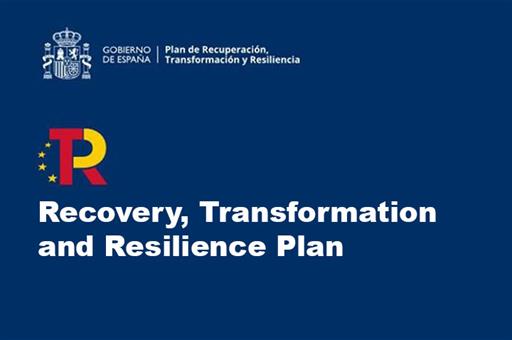The Recovery Plan will increase the level of Gross Domestic Product by 2.6 percentage points on average each year until 2031
News - 2022.9.22
The Vice-President of the Government of Spain stressed that the implementation of the Recovery Plan will increase the level of Gross Domestic Product (GDP) by 2.6 percentage points on average each year until 2031. This impact is the result of improved expectations, as well as the combined effect of reforms and investments already underway, with a particularly significant impact on job creation, investment in capital goods and intellectual property.
The approval of the Plan in 2021 generated an important effect on expectations at a time of strong uncertainty, contributing six tenths of a percentage point to GDP. The impact of expectations is particularly significant on investment in capital and intellectual goods, which changes total factor productivity and modifies the level of GDP in the future.
Moreover, the Plan had a significant counter-cyclical effect during the second half of last year, with investment in the fourth quarter increasing by 17%, higher than would have been the case without the Plan.
In addition to the direct impact of the investments, which will be particularly significant in 2022 and 2023, there is the even more important effect of the Plan's transformative and reformist agenda, which, due to its structural nature, will be spread over a longer period and will increase in the coming years.
Of the reforms approved and those to be adopted, the reforms linked to the labour market will have the greatest economic impact in terms of consumption, production and human capital, and also on reducing inequality. A long-term impact of 6 tenths of a percentage point is expected, i.e. a structural and modernising impact.
Implementation of the Recovery Plan
The Vice-President of the Government of Spain reported that the execution of the Recovery Plan has already reached cruising speed, with over EUR 18.8 billion in authorised investments up to mid-September and over EUR 15.35 billion committed.
Nadia Calviño pointed out that over 70,000 projects have already benefited from the calls for tender and tenders for services and works carried out by the General Spanish State Administration and the Regional Governments. Most of them - 53,600 - promoted by companies and local bodies, as well as technology and research centres, are financed by the Spanish State.
The implementation of the Plan has been accelerated by the Regional Governments, maintaining a monthly rhythm of calls for tender for over EUR 2 billion, with initiatives as important as the Digital Kit, the MOVES green mobility programmes, investments in the renovation of healthcare equipment under the INVEAT programme, or the expansion of broadband connectivity to 100% of the territory.
The Regional Governments play a key role in deploying the Plan. A total of EUR 18.379 billion have been transferred to the Regional Governments, mainly through the 100 Sectoral Conferences held, for the management and execution of investments in their areas of competence in terms of education, vocational training, social housing, building renovation, sustainable mobility and care, to name but a few.
These investments and reforms must include the approval of 11 Strategic Projects (PERTE), which are enabling investments in strategic areas, such as sustainable mobility, renewable energies, the agri-food industry, health and microelectronics. EUR 9.372 billion have already been mobilised, including EUR 3 billion for the Electric and Connected Vehicle PERTE, EUR 600 million for the Cutting-Edge Health PERTE and EUR 3.9 billion for the Renewable Energy, Renewable Hydrogen and Storage PERTE.
This increase in investment is coupled with progress in the approval of structural reforms, including the labour reform, the pension reform, the bankruptcy reform and the recently approved "Create and Grow" law, which is the biggest reform drive in the Spanish economy to take place in recent years.
Spain leads in Europe when it comes to implementing NextGenerationEU funds
Spain leads in the European Union when it comes to implementing the Recovery Plan, being the first to receive the initial two payments, which are conditional on the fulfilment of milestones and targets. In this way, Spain has received over EUR 31 billion in transfers.
The next disbursement of EUR 6 billion will be conditional on the completion of twenty reforms and nine investments during the second half of 2022.
Addendum to the Recovery Plan
In addition, the Ministry of Economy and Digital Transformation is working on drafting the Addendum to the Recovery Plan, which will include new reforms and investments to be financed from the EUR 7.7 billion in additional transfers and EUR 84 billion in loans.
A process of dialogue and consultation with the Regional Governments, parliamentary groups and social partners has been launched to define the structuring, objectives and destination of transfers and loans.
The additional transfers will be used to reinforce the PERTE to strengthen strategic autonomy in the energy, agri-food, industrial, technological and digital fields.
Apart from that, loans will be mobilised through financial instruments, such as credits, loans, guarantees and equity participations. In addition, a Fund for Strategic Investments will be created for the Regional Governments, which will allow them to implement public policies within their competence, such as housing, transport and the care economy.
Non official translation





